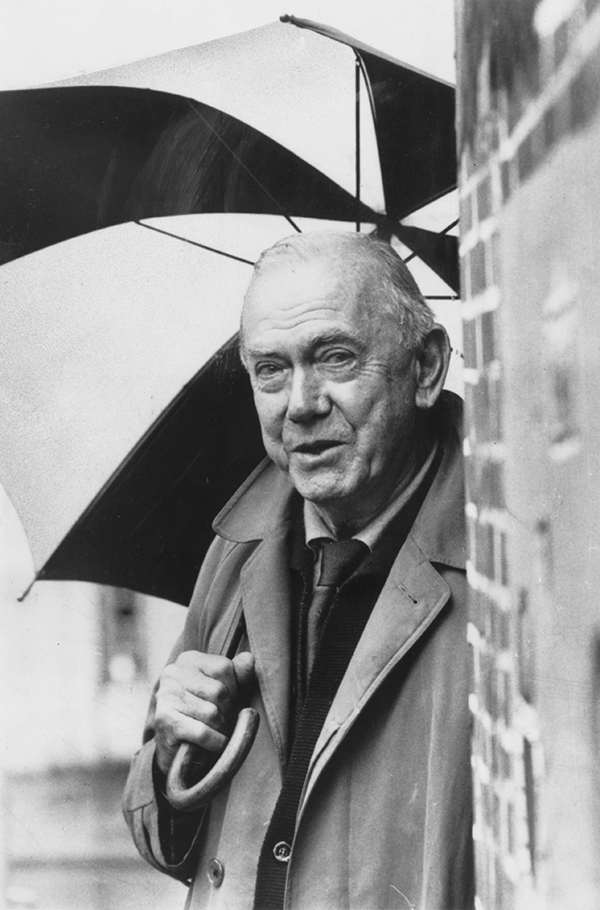During the pandemic, I decided to try to get my room in some order — putting books into bookcases according to some pattern, getting clippings from newspapers and Catholic periodicals off the floor and into my filing cabinet.
Without looking for essays about the Catholic novel, I found some, and they brought back a wonderful memory of an experience from before the pandemic. At the start of last spring semester, after teaching philosophy for more than fifty years, I started to conduct my first seminar. I chose as a topic the “Catholic Novel.”
About twenty-five students signed up for the seminar course at St. John’s University, among them several seminarians. I have long believed that the Catholic novel is a treasure hidden in a field just waiting to be rediscovered by English teachers, theology, philosophy, and spirituality to be used in courses. It is something of a mystery to me why this treasure is neglected.

I have tried to encourage teachers in Catholic high schools and colleges to construct a Catholic novel course but have found little interest. I suspect that some think that such a course would be too parochial, too narrow in its scope. Of course, I have the opposite opinion. Catholic novels raise the most important questions about God’s mystery and the mystery of the human person and dramatize the love relationship between God and God’s creatures.
I first became interested in the Catholic novel in my senior year at the Jesuit high school, Xavier, in Manhattan. The English professor, Father Vincent Taylor, S.J., had us read the novel “Brighton Rock,” by Graham Greene. I had never heard of the book or the author. It is not an exaggeration to say that the experience of reading the novel and attending Father Taylor’s lectures changed my life.
I still recall a kind of mantra that Father often repeated: “Say you don’t like Graham Greene’s writing. That’s a matter of taste. No problem. Say he is not a good writer. You’re wrong!” Greene’s novel whets my appetite and during my college education and after I devoured novels by Greene, Evelyn Waugh, Francois Mauriac, George Bernanos, Piers Paul Read, J.F. Powers, Flannery O’Connor, Bruce Marshall, and others. Once I decided to conduct a seminar, it did not take me long to decide that it would involve the reading and discussion of Catholic novels.
Two concerns I had before the seminar began were my experience, shared by many other professors, that some contemporary college students have not developed the habit of reading serious literature. My other concern was the size of the class. Could I conduct a seminar with an enrollment of more than twenty students? As the semester started, both fears disappeared.
I think we had three sessions before changes had to be made in the course because of the pandemic. In the first session, one of the students led a discussion on Greene’s novel “The End of the Affair.” It was the best class discussion I have ever had in the more than thirty years I have been teaching at St. John’s. The seminarians were very interested in learning about Catholic novels. But they were not the only ones interested. I was thrilled to hear students seriously discussing the nature of sin, the mystery of love, and the presence of the Holy Spirit in everyone’s life.
I quickly realized that this seminar could be one of the most enjoyable experiences in my long teaching career. In the second session, a student-led a discussion on Greene’s masterpiece, “The Power and the Glory.” This session was almost as good as the first. Students discussed whether Greene’s “whiskey priest” was a saint or headed for hell. In the discussions in both these first two sessions, I contributed, but I tried to allow them to do most of the talking.
The third session was a lecture on George Bernanos’ “The Diary of a Country Priest.” It was a fantastic class, full of insights offered by my guest lecturer. The next novel we were going to discuss was Evelyn Waugh’s masterpiece, “Brideshead Revisited.” Unfortunately, the pandemic arrived, and I had to redesign the entire course. I think the course went well, but the interaction that took place in the first three sessions was not duplicated.
Finding the essays on the Catholic novel a few weeks ago in my room provided a nostalgic moment. I appreciated anew what a great privilege it is to be a teacher. I also appreciated how blessed I was to have been introduced to a Catholic novel in high school and how fortunate I was to have been able to read so many Catholic novels since high school and to recommend them to others. As I end this essay, I am going to say a prayer for Father Vincent Taylor, S.J.
Father Lauder is a philosophy professor at St. John’s University, Jamaica. He presents two 15-minute talks from his lecture series on the Catholic Novel, 10:30 a.m. Monday through Friday on NET-TV.
